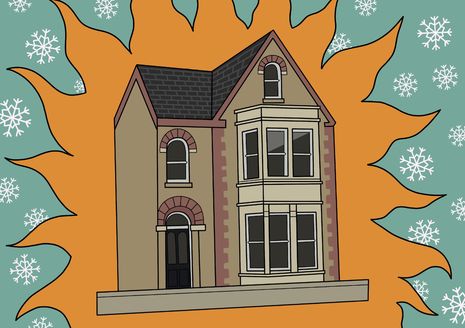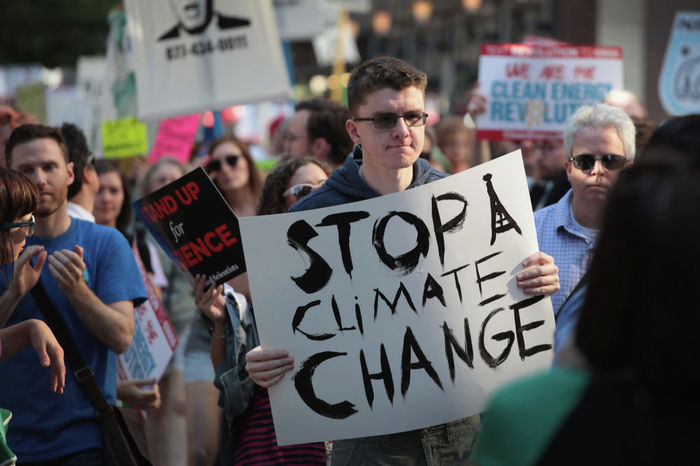Insulating British homes is imperative. That we’ve not done it yet is indefensible
Reuben Brown, creator of the “Talking Volumes” architecture podcast, discusses the recent Insulate Britain protests and the need to adequately insulate British housing

We know by now that Boris Johnson’s politics are big on rhetoric and scant on substance. He is a media man: a long-time opportunistic journalist who knows how to win attention. At the U.N. general assembly last week he waxed lyrical about his “Promethean faith in new green technology”. But there’s no use in green tech if you can’t figure out how to implement it — let alone install the solutions we already have.
On the other side, Extinction Rebellion (X.R.) offer urgent moralism about the threats of our climate collapse. “Tell the Truth”, “Act Now”, “Go Beyond Politics,” cries their website banner. The speeches I heard in Trafalgar Square at their “Impossible Rebellion” at the beginning of September were indistinguishable from what I heard two years before in the same place — the world is falling apart and we have to do something about it. But do what, exactly?
With COP 26 on the horizon, it’s time to get real about the nitty-gritty of reaching net-zero.
Enter Insulate Britain. Against the Prime Minister’s speculative sloganeering (“Jet Zero”, “Levelling Up”, “Global Britain”, the list goes on…), and X.R.’s vague doomsaying, the new kids on the block (or on the M25, I should say) inject a refreshing pragmatism into the climate debate. One simple, specific — if unsexy — demand: insulate the nation’s housing stock to cut the 15% of U.K. carbon emissions generated by heating homes.
The reality, however, is of course more complicated — and needs a level of scrutiny greater than blocking the South East’s most important roadways during a supply chain crisis which is squeezing the cost of living around the U.K.
"To reach net-zero emissions, we have to stop using gas in our homes, full stop."
Britain’s housing stock is the oldest and draughtiest in Europe, and the vast majority of our homes are heated by individual gas boilers. Taken together, it means that we waste a shocking amount of energy keeping our homes warm in the winter. To reach net-zero emissions, we have to stop using gas in our homes, full stop. This will likely mean a transition to heat pumps and district heating networks; there are a host of creative solutions, but it’s no use investing in all the new technology without plugging the old leaks first. Insulating Britain is the crucial first step.
What will this mean in practice? First we need to recognise how the climate crisis intersects here with the U.K.’s housing crisis — which, rather than just being about the number of new homes built, also confronts the quality of our existing homes. The All-Party Parliamentary Group for Healthy Homes and Buildings’ 2018 White Paper is a damning report on the state of British housing. 1 in 3 homes in the U.K. suffers from mould, and a third of people live in housing that fails to meet the government’s Decent Homes Standard. 9,000 deaths a year are caused by cold houses — often due to a lack of insulation. Needless to say, these symptoms most acutely affect those on lower incomes, who cannot afford high gas bills (set to drastically increase this winter).
"1 in 3 homes in the U.K. suffers from mould, and a third of people live in housing which fails to meet the government’s Decent Homes Standard."
I learned these figures early in my architecture degree, and asked my lecturer — what can we do? There are plenty of solutions, and architects and builders have the expertise to implement them (for a particularly effective and heartwarming example, see 2021 Pritzker Prize laureates Lacaton & Vassal’s retrofit of 530 flats in Grand Parc Bordeaux). But without proper legislation and oversight, the despicable conditions of British housing, and the inexcusable level of emissions they produce, will continue.

Cambridge University Is divesting, now its faculties must cut all ties with the fossil fuel industry
To begin, the A.P.P.G. report offers a set of sensible recommendations: namely, the establishment of a single government department responsible for improving British homes and buildings. Rather than follow this directive, however, the government’s neoliberal response has been to allow renters to sue their landlords for repairs: a time-intensive and possibly expensive process that hardly helps those who can’t afford to live in a safer home, while ensuring that nothing genuinely improves beyond the minimum level required by law. Meanwhile, Michael Gove acts as Secretary of State for “Levelling Up” (quotations added), Housing and Communities, whose “responsibilities for this role will be confirmed soon”.
Since his job isn’t yet confirmed, how about I suggest a broader view — one that incorporates public health, economics, and the environment together. A 2015 Building Research Establishment briefing paper estimates that the costs of improving British housing to an “acceptable level” would reach some £35bn. It’s a steep bill, but we have to think long-term. The costs to the N.H.S. from unsafe housing reach £2.5bn a year, and the wider costs to society are as high as £18bn — not to mention the enormous economic threat posed by the climate crisis: every pound spent today avoiding the worst-case scenarios will pay dividends twenty years from now. Equally, rolling out deep retrofitting works across the U.K. will provide thousands of high-quality, skilled jobs.
Put together, it’s a blindingly obvious programme the government should have rolled out ten years ago — and yet a bunch of activists in orange high-vis still have to sit on the motorway for them to see it. Boris might find it boring, but it’s the boring work that’s going to count in the end.
 News / Colleges charge different rents for the same Castle Street accommodation2 March 2026
News / Colleges charge different rents for the same Castle Street accommodation2 March 2026 News / News in Brief: waterworks, wine woes, and workplace wins 1 March 2026
News / News in Brief: waterworks, wine woes, and workplace wins 1 March 2026 News / Climate activists protest for ‘ethical careers policy’1 March 2026
News / Climate activists protest for ‘ethical careers policy’1 March 2026 News / Angela Merkel among Cambridge honorary degree nominees27 February 2026
News / Angela Merkel among Cambridge honorary degree nominees27 February 2026 News / Private school teacher who lied about Cambridge degree barred from teaching27 February 2026
News / Private school teacher who lied about Cambridge degree barred from teaching27 February 2026








